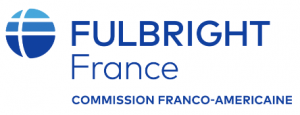Fulbright Program France┋Fulbright-Schuman European Union Affairs Program
The Fulbright-Schuman Program, administered by the Commission for Educational Exchange between the United States and Belgium, is jointly financed by the U.S. State Department and the Directorate-General for Education and Culture of the European Commission. It funds projects exclusively dealing with U.S.-EU relations, EU institutions, or EU policy.
Grants for U.S. citizens to the European Union
The following grants are available for U.S. citizens to the European Union who have completed a PhD (or other terminal degree in their field):
- General Research Grants for Visiting Scholars
- Fulbright Schuman Innovation Award
- Fulbright Schuman Chair at the College of Europe
- Fulbright Schuman Chair the European University Institute
- Postdoctoral Award at the European University Institute
The following grants are available for students (i.e., non-PhD holders):
- Study/Research Grants for Students
Eligibility & Application Process
Awards are available to American students and professionals, including professionals in training – decision-makers, policy-makers, individuals in industry, the media, politics, academia, and public administration – who wish to study, research, or lecture on a topic relevant to U.S.-EU relations, EU policy, or EU institutions. Preference is given to candidates who will divide their time between host institutions in at least two EU member states so that their projects reflect a pan-European perspective. However, proposals that include stays at one institution that has significant ties to the EU or EU studies will also be considered.
Candidates must arrange their own placement at an accredited university, vocational training/professional institution, or independent research center. Preference will be given to applicants with two years of relevant professional or academic experience beyond the Bachelor’s degree who plan to carry out their project in at least two EU member states. However, project proposals including only one city or university program with significant ties to European Union institutions and studies will be considered.
Grants are for 6 to 9 months (continuous stay) with a minimum period of 3 months in each EU member state. For candidates without a PhD, preference is given to those who will complete one academic year. Please note that your whole stay should be consecutive; there can’t be a break in between.
U.S. applicants to the Fulbright Program in Belgium and Luxembourg apply through IIE (for students) and CIES (for scholars). The deadline for scholars to apply via CIES is 1 August. The deadline for students to apply via IIE is mid-October (but on-campus deadlines may be earlier. Applicants who are recommended by the National Screening Committee will be contacted by the Fulbright Commission in Brussels and interviewed via Skype in early February.
Benefits
- Monthly stipend of 2000€ per month for students and 3000€ per month for scholars (with the exception of the Fulbright-Schuman Postdoctoral Researcher at European University Institute, who receives 2000€ per month)
- Travel allowance of 2000€ intended to defray travel and relocation costs
- Sickness & Accident Insurance
- Participation in one-week EU-NATO Seminar in Brussels and Luxembourg
Total grant amounts are dependent on the proposed project length. The Fulbright Commission reserves the right to offer applicants funding for a shorter period than initially requested, if the Fulbright Selections Committee determines that this will not negatively impact the scope of the proposed research. The maximum grant that any candidate may receive is set at 20,000€ for students and 29,000€ for scholars. No candidate may receive funding from the Fulbright Schuman Program in concurrence with other European Commission funding (e.g., Marie Curie) for the same activity.
